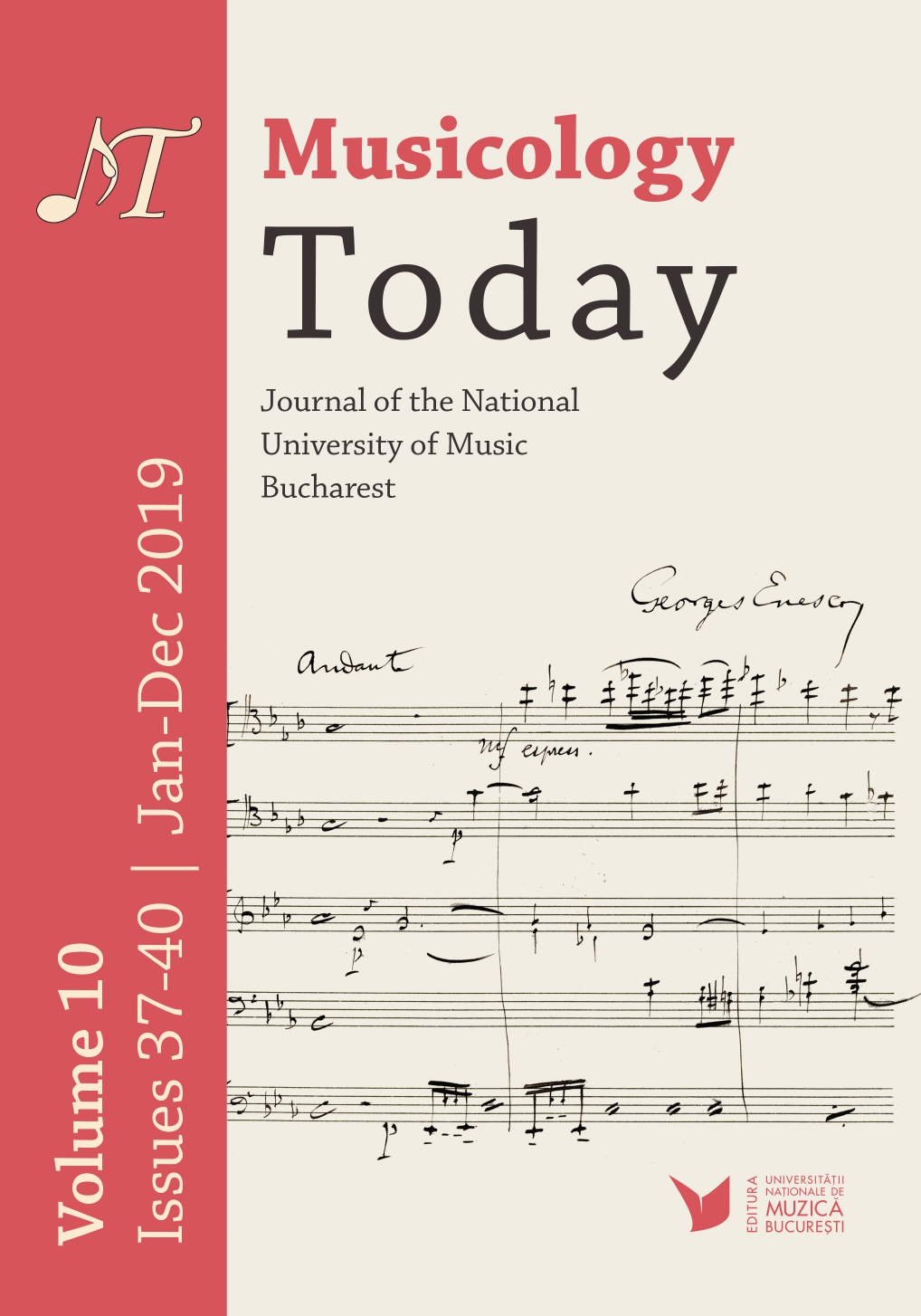Musical Creation Between Freedom and Ideological Control. Sigismund Toduță, Criticism of the Communist Regime, and His Secret Works
Musical Creation Between Freedom and Ideological Control. Sigismund Toduță, Criticism of the Communist Regime, and His Secret Works
Author(s): Gabriel BanciuContributor(s): Roxana Huza (Translator)
Subject(s): Music
Published by: Editura Universității Naționale de Muzică din București
Keywords: censored compositions; political regime; socialist realism;
Summary/Abstract: Under the Communist rule creative freedom was strongly restricted by the hypocrisy of the doctrines which only accepted music as a tool of propaganda. Composers had to hide that part of their work breaking the politically-accepted model and later referred to, ironically, as “desk drawer music”. Even the pieces which seemed to conform to the party line but hinted at the styles promoted by the West were considered “decadent” and were harshly criticized by the censorship apparatus. One of its organisms, endowed with political power, was the Union of Composers, the decision-maker with regard to art music publication and performance. An exploration of the political documents of the time and the ideas noted by composer Sigismund Toduță, enriched by memoires and testimonials of his contemporaries, will allow us to understand certain specific aspects of that era.
Journal: Musicology Today: Journal of the National University of Music Bucharest
- Issue Year: 10/2019
- Issue No: 38
- Page Range: 103-116
- Page Count: 15
- Language: English

